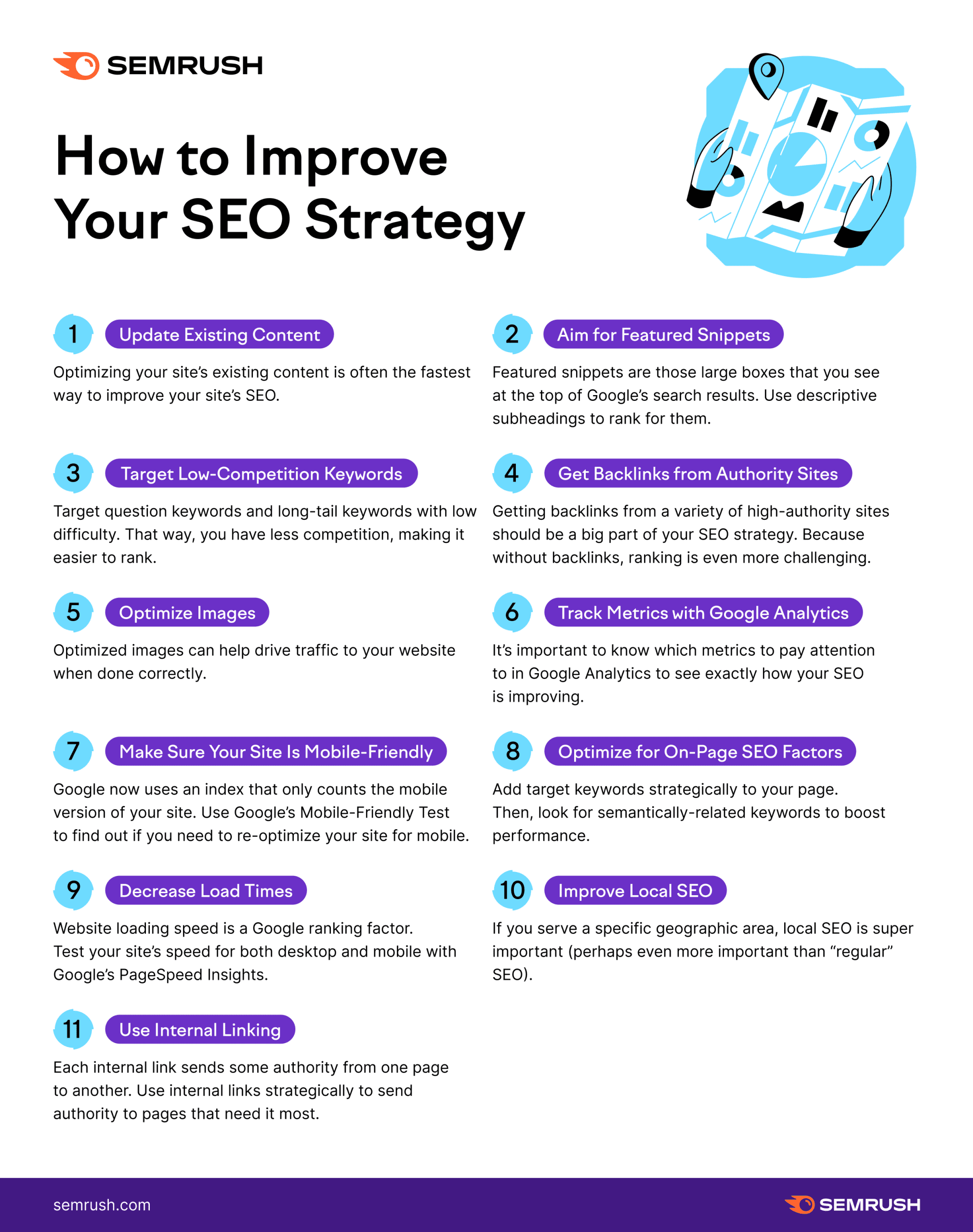Are you looking for ways to improve your website’s search engine rankings? If so, then you’ve come to the right place! In this article, we’ll provide you with the top 10 tips for optimizing your SEO and improving your website’s ranking. From keyword research to link building, we’ll cover everything you need to know to start climbing the search engine rankings. With these tips, you can start driving more organic traffic to your website and boosting your visibility online. So, let’s dive in and get started!
Top 10 Tips for Optimizing Your SEO: How to Improve Your Rankings
Search Engine Optimization (SEO) is an essential part of any digital marketing strategy. It helps businesses to increase their visibility on search engine results pages (SERPs) and get more organic traffic to their websites. Optimizing your SEO can be a daunting task, but it’s important to understand the basics in order to get the most out of your efforts. Here are the top 10 tips for optimizing your SEO and improving your rankings.
1. Research Keywords
Researching relevant keywords is one of the most important steps in optimizing your SEO. You need to find out which keywords are being used by your target audience when searching for products or services related to your business. Once you have identified the right keywords, you can use them in your content and other elements of your website to help improve your rankings.
2. Optimize Your Website Content
Your website content needs to be optimized for both users and search engines. Make sure that your content is well-written, informative, and relevant to the keywords you are targeting. Additionally, make sure to include internal links to other pages on your website and external links to reputable sources.
3. Use Heading Tags
Heading tags are used to structure your content and make it easier for search engines to crawl and index your pages. They also help to break up long pieces of text into smaller sections, making them easier for readers to digest. Include relevant keywords within your heading tags to further optimize your content.
4. Optimize Page Titles and Meta Descriptions
Page titles and meta descriptions are important elements of SEO because they appear in SERPs and provide potential visitors with a brief overview of what your page is about. Make sure your page titles and meta descriptions are optimized for your target keywords and accurately describe the content on the page.
5. Utilize Image Alt Text
Image alt text is an HTML attribute that provides a text description of an image. This is important for SEO as it allows search engines to understand the context of the image and index it accordingly. Make sure to include relevant keywords in your image alt text to help boost your rankings.
6. Use Structured Data Markup
Structured data markup is code that you can add to your website that helps search engines better understand the content on your pages. This can be used to provide additional information about your business, such as opening hours or product prices, which can help improve your rankings.
7. Create Quality Backlinks
Backlinks are links from other websites that point to your website. Having quality backlinks from reputable websites can help to boost your rankings and increase your visibility on SERPs. Try to build relationships with other websites in your industry and offer to write guest posts or share content in exchange for a link back to your website.
8. Monitor Your Rankings
It’s important to regularly monitor your rankings in order to track the progress of your SEO efforts. You can use tools such as Google Search Console or SEMrush to track your rankings and measure the impact of your SEO activities.
9. Stay Up to Date with Algorithm Changes
Search engine algorithms are constantly changing, so it’s important to stay up to date with the latest updates. Following industry news and blogs can help you to stay ahead of the curve and ensure that your SEO strategies are in line with the latest best practices.
10. Keep Testing and Improving
Finally, it’s important to keep testing and improving your SEO strategies. Try different approaches, analyze the results, and adjust your tactics accordingly. This will help you to continually optimize your SEO and improve your rankings over time.
Optimizing your SEO can be a complex and time-consuming process, but following these tips can help you to get the most out of your efforts. By researching keywords, optimizing content, using structured data markup, and monitoring your rankings, you can ensure that your website is visible to your target audience and is ranking highly on SERPs.
